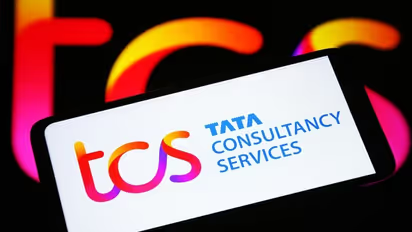Amid industry uncertainties, TCS to hire 40,000 campus recruits in FY24: Company COO confirms

Synopsis
TCS has been focusing on improving its utilization rate and has not resorted to significant layoffs, despite facing the industry's broader hiring challenges. Subramaniam also acknowledged that hiring laterals would be calibrated based on demand for discretionary spending projects.
In a situation marked by sluggish growth, Tata Consultancy Services (TCS) Chief Operating Officer N Ganapathy Subramaniam has indicated that the company is proceeding with its plans to hire 40,000 campus recruits in the current financial year. In an interview with TOI he said, "We usually hire between 35,000 to 40,000 people and those plans are intact. There are no large-scale layoffs. The way we've calibrated this is we're working towards improving our own utilisation because we have a decent bench."
TCS has been focusing on improving its utilization rate and has not resorted to significant layoffs, despite facing the industry's broader hiring challenges. Subramaniam also acknowledged that hiring laterals would be calibrated based on demand for discretionary spending projects.
"When there is a contraction in discretionary spending, we hire a lesser number of laterals. In the last 12 to 14 months, we saw a huge attrition. We didn't know how long that would continue, so we ended up hiring a lot more than what we needed to build a bench. Our utilisation is currently around 85%... we used to operate at about 87-90%," he added.
However, some of TCS's competitors, such as Infosys, remain cautious about visiting campuses for hiring due to ongoing uncertainties in demand. Infosys Chief Financial Officer Nilanjan Roy stated that they won't visit campuses until there is an uptick in demand. In TCS's case, it has decided to maintain its hiring plans and focus on boosting utilization, given that it possesses a decent bench of employees.
Subramaniam explained that TCS has been preparing its bench to meet potential demand by having around 10% of its employees on the bench, which amounts to approximately 60,000 people. This pool of talent has undergone training, induction, and upskilling in the last 12 months, making them ready for deployment in various projects.
"About 10% of 6 lakh employees - which means about 60,000 people - are on the bench and they can be productively deployed. But all these people were going through training, induction, and upskilling in the last 12 months. They're available as a productive pool to be deployed into various projects," he told TOI.
When asked about a slight reduction in TCS's headcount during the September quarter, Subramaniam explained that in the current scenario, TCS managed to meet demand by leveraging its internal pool, resulting in a net reduction of around 6,000 employees. The reduction was due to employees who had left in the previous quarter and were replaced with the existing workforce rather than hiring externally. Subramaniam also noted the high demand for talent with multi-cloud skills and interoperability standards.
TCS reported weak growth in the quarter ending in September, influenced by factors such as the pullback in discretionary spending, slower deal ramp-ups, and challenges in key business verticals and regions. The company's revenue increased by 2.8% in constant currency compared to the same period last year but remained flat sequentially. Nonetheless, TCS secured orders worth $11.2 billion in the quarter, marking the third consecutive quarter of closing over $10 billion in total contract value (TCV).
Subramaniam mentioned that while the industry faces macroeconomic uncertainties, TCS managed to maintain a decent quarter. Clients are carefully managing discretionary spending, aiming for quick returns on investments and focusing on projects that deliver value within 90 to 120 days. Consequently, discretionary spending projects are being constrained or judiciously managed.
Stay updated with the Breaking News Today and Latest News from across India and around the world. Get real-time updates, in-depth analysis, and comprehensive coverage of India News, World News, Indian Defence News, Kerala News, and Karnataka News. From politics to current affairs, follow every major story as it unfolds. Get real-time updates from IMD on major cities weather forecasts, including Rain alerts, Cyclone warnings, and temperature trends. Download the Asianet News Official App from the Android Play Store and iPhone App Store for accurate and timely news updates anytime, anywhere.